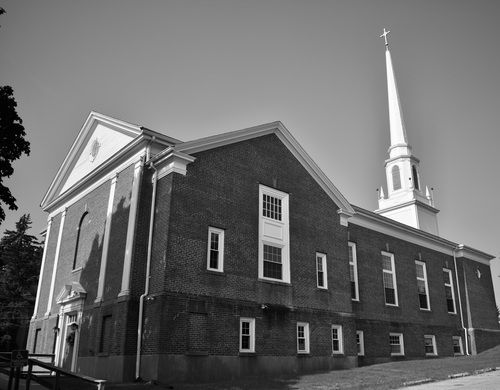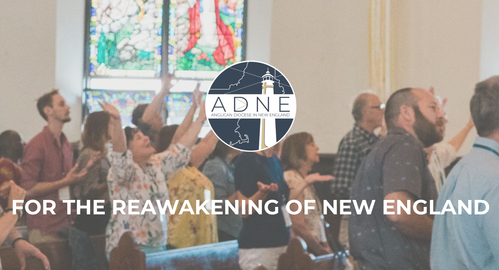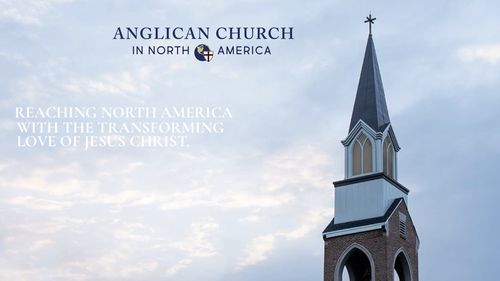anglican church of the redeemer in norwood
The Anglican Church of the Redeemer in Norwood held its inaugural service at its current location on September 27, 2009. It was formed by a group of believers who, after prayer and deliberation made the decision to form a church to uphold the historic faith, proclaim the gospel and be in fellowship with other faithful Anglicans throughout the world. The parish has been meeting for regular Sunday worship since that time, with Father Alan Bouffard serving as its Vicar.
We are part of the Anglican Diocese in New England (ADNE) and the Anglican Church in North America (ACNA).
Our mission is to celebrate the Christian faith acknowledging Jesus Christ as Lord and Savior, uphold Scripture as the unchanging Word of God, and lead others into a saving relationship with Him through Biblical teaching and fellowship.
In addition to worship and fellowship, we also seek to serve God and our neighbors through mission activities undertaken in conjunction with other Christian organizations.
We invite everyone to come and worship with us. If you are a long-time Christian looking for a church family, or if you are simply seeking to know more about the Christian faith and find out who we are and how we live out our faith, we would love to meet you. Come and see!
We are part of the Anglican Diocese in New England (ADNE) and the Anglican Church in North America (ACNA).
Our mission is to celebrate the Christian faith acknowledging Jesus Christ as Lord and Savior, uphold Scripture as the unchanging Word of God, and lead others into a saving relationship with Him through Biblical teaching and fellowship.
In addition to worship and fellowship, we also seek to serve God and our neighbors through mission activities undertaken in conjunction with other Christian organizations.
We invite everyone to come and worship with us. If you are a long-time Christian looking for a church family, or if you are simply seeking to know more about the Christian faith and find out who we are and how we live out our faith, we would love to meet you. Come and see!

Anglican Diocese In new england

For such a time as this, the Anglican Diocese in New England is a passionate and entrepreneurial family of churches with a footprint across the North East. Gathered from around the U.S. and the world, we are united in Word, Spirit, Sacrament and Mission and committed to the reawakening of New England. We have prayerfully identified five specific areas we believe the Lord has called us to prioritize:
1. To foster a New England wide culture of fervent prayer.
2. To invest in our leaders (marketplace and ordained) recognizing that our leaders are the local missional experts in terms of sharing our faith in words and in action.
3. To pursue church growth and church planting. We recognize that Kingdom growth emerges from a culture where everybody in the diocese, every community of faith, is thinking about multiplication.
4. To reach and disciple children and young people. We recognize that it truly does take a village to raise a young person and for us to fully live out His call requires an intergenerational commitment to time, treasure and talents. These are our children and young people.
5. To care for our leaders and their families wholeheartedly, by creating a culture of honor, investment, gratitude, celebration, accountability, encouragement and grace. Yes, the moral arc of the universe is bent toward the coming of the Kingdom, but there are no “superheroes.” So, let’s look after each other!
1. To foster a New England wide culture of fervent prayer.
2. To invest in our leaders (marketplace and ordained) recognizing that our leaders are the local missional experts in terms of sharing our faith in words and in action.
3. To pursue church growth and church planting. We recognize that Kingdom growth emerges from a culture where everybody in the diocese, every community of faith, is thinking about multiplication.
4. To reach and disciple children and young people. We recognize that it truly does take a village to raise a young person and for us to fully live out His call requires an intergenerational commitment to time, treasure and talents. These are our children and young people.
5. To care for our leaders and their families wholeheartedly, by creating a culture of honor, investment, gratitude, celebration, accountability, encouragement and grace. Yes, the moral arc of the universe is bent toward the coming of the Kingdom, but there are no “superheroes.” So, let’s look after each other!
anglican church in north america
THE BASICS
First and foremost, Anglicans are Christians. Globally, Anglicans form the third largest body of Christians in the world (around 80 million members) behind the Roman Catholic and Eastern Orthodox churches.
ORIGINS OF THE NAME
The name “Anglican” is traced back to the ancient Anglo-Saxon tribes of Europe. The tribal name was spelled “Engles” or “Angles” and the tribe’s speech was the precursor to the English language. Their island became known as England, and their Christians were known as Anglicans. The name has nothing to do with “angels.”
GLOBAL ANGLICANS
Just as the English language spread with the British empire, so did Anglican Christianity. When Anglicans resettled in new lands, they brought their personal faith with them. Chaplains and pastors were often among their number. Additionally, many Anglicans traveled as missionaries to share the Gospel. Consequently, Anglican churches now exist all over the world in more than 165 countries. As Anglican Christians became a global family, the demographics shifted dramatically. While Christians from Britain, the United States, Canada, and Australia continue to play an important role, today the “average” Anglican is a young woman from Sub-Saharan Africa.
WORSHIP
Anglican worship is diverse, and it is best understood by visiting and attending a local congregation. What is common to all is an inheritance of worship that recognizes the supremacy of the Bible and often finds expression through the Prayer Book. To understand what and how Anglicans pray is to understand what they believe. The Prayer Book, described as the Scriptures arranged for worship, provides helpful resources for everything from personal daily devotions to large public gatherings of worship. It includes prayers for every season of life.
First and foremost, Anglicans are Christians. Globally, Anglicans form the third largest body of Christians in the world (around 80 million members) behind the Roman Catholic and Eastern Orthodox churches.
ORIGINS OF THE NAME
The name “Anglican” is traced back to the ancient Anglo-Saxon tribes of Europe. The tribal name was spelled “Engles” or “Angles” and the tribe’s speech was the precursor to the English language. Their island became known as England, and their Christians were known as Anglicans. The name has nothing to do with “angels.”
GLOBAL ANGLICANS
Just as the English language spread with the British empire, so did Anglican Christianity. When Anglicans resettled in new lands, they brought their personal faith with them. Chaplains and pastors were often among their number. Additionally, many Anglicans traveled as missionaries to share the Gospel. Consequently, Anglican churches now exist all over the world in more than 165 countries. As Anglican Christians became a global family, the demographics shifted dramatically. While Christians from Britain, the United States, Canada, and Australia continue to play an important role, today the “average” Anglican is a young woman from Sub-Saharan Africa.
WORSHIP
Anglican worship is diverse, and it is best understood by visiting and attending a local congregation. What is common to all is an inheritance of worship that recognizes the supremacy of the Bible and often finds expression through the Prayer Book. To understand what and how Anglicans pray is to understand what they believe. The Prayer Book, described as the Scriptures arranged for worship, provides helpful resources for everything from personal daily devotions to large public gatherings of worship. It includes prayers for every season of life.
